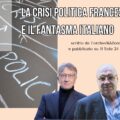Forty years ago, in the same month of August, a formidable blow hit the monetary system: Richard Nixon put an abrupt end to the convertibility of US dollar into gold. As a result, the regime of fixed exchange rates among the greenback and other currency were suddenly a memory of the past. The two pillars of the Bretton Woods system had become history.
This was a striking signal that the order from WW2 did not represent the then emerging countries. Even if the event was unexpected, in reality, no government ever requested gold in exchange for dollars. Through a gentlemen agreement, spontaneous in some instances, obtained through American pressure in others, gold could rest in Fort Knox without any threat. Despite the uncertainty of variable exchange rates, Washington kept enjoying a unique privilege: being sure its Treasury Bills would have been bought anyway. Countries with high saving rates were more than glad to finance a powerful ally, without asking to redeem the bills. The national debt of USA has been manageable and at times even low over the years.
The current situation is as complex and dangerous as that of August 1971. Beijing seems to have learned a couple of lessons. Firstly, the size of the American debt is getting not easy to handle: too big of a problem. Secondly, the White House is losing strength and power. The long and curvy road to fix a new ceiling for the public spending in Washington signaled Beijing a bitter reality. When a President is forced to mediate and negotiate – as Obama did – he is not perceived as a champion of democracy, but as lame duck, a weak ruler. The blatant downgrade by S&P is only the seal of this new ineffectiveness. In the absence of cuts in military and welfare expenses, the same problems for Washington will be faced again very soon.
In this murky scenario, China asks itself whether it wise to keep on buying dollars or dollar-denominated bonds. Surely, this is the best way to protect its savings, by increasing the demand for the American currency (and, consequently, its value). However it also means to prolong its agony. Maybe the sacrifice to buy green backs is no longer far-sighted. Beijing is now creditor and hostage of Washington at the same time. Thus, some exponents of the ruling class are seriously thinking that the vicious link with the dollar should be cut or at least loosened. Beijing’s foreign reserves would initially lose some value, but this would translate in improved financial independence in the medium term.
With this objective in mind, a revaluation of the RMB would be a more than appropriate tool. Buying capacity of Chinese citizens would increase, so as the quality of its export, while domestic manufacturing would no longer be identified with cheap products. Moreover, China would comply with the international financial community, asking since a long time for an RMB’s appreciation. The Government of China asked for a multilateral organization to control the flow of dollars, but knows well Washington is not willing to share its power. Decisions about a global currency are still an exclusive right of the White House. Even the slightest possibility of a new quantitative easing during Q3, disturbs China. Therefore, it might be better to loosen the current perverse relationship, to stop fighting a monetary war in which the opponent still holds the sharpest weapons.

















Lascia un commento